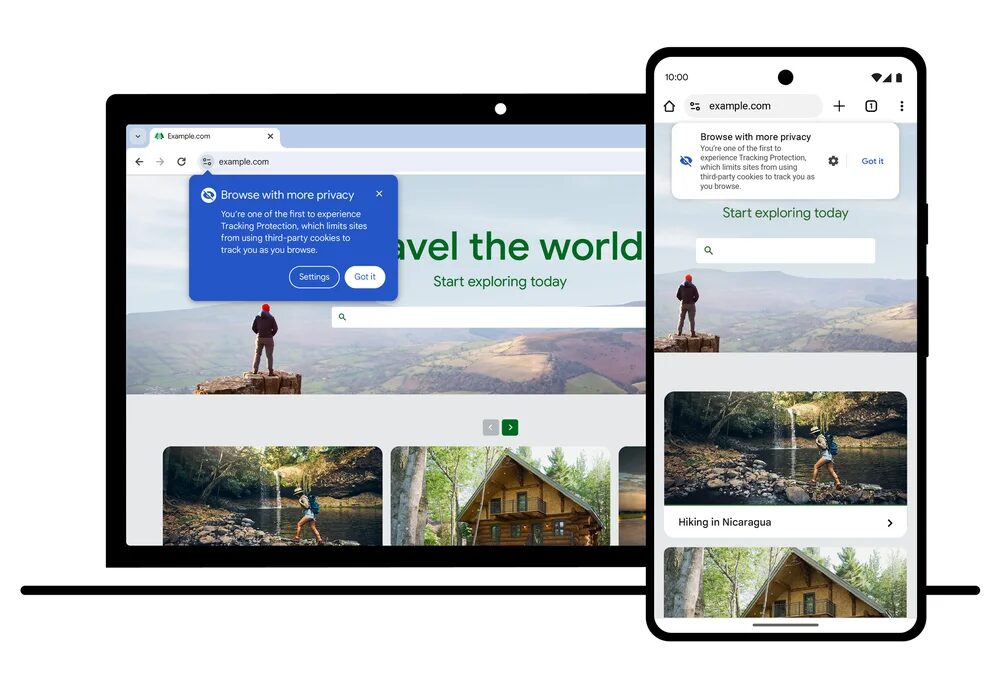Google is taking a significant step towards eliminating third-party cookies in Chrome with the introduction of Tracking Protection. Starting January 4, this new feature, which limits cross-site tracking, will begin testing with 1% of Chrome users globally.
This move is a critical component of Google’s Privacy Sandbox initiative, aiming to phase out third-party cookies by the second half of 2024, in line with the UK’s Competition and Markets Authority’s considerations.
Third-party cookies have been integral to the web for almost 30 years, serving functions ranging from user activity tracking to supporting various online experiences like logins and ad relevance.
However, the Privacy Sandbox represents Google’s commitment to responsibly transition away from these cookies. New tools have been developed to support essential website functionalities, providing developers with the necessary transition period.

The Tracking Protection feature will be implemented for a randomly selected group of Chrome users, who will be notified upon opening the browser on desktop or Android platforms.
With this feature activated, third-party cookies will be restricted by default, significantly reducing the ability to track users across different websites.
Google has also considered potential user experience challenges. If Chrome detects issues on a website due to the absence of third-party cookies, such as repeated page refreshes, users will be prompted with an option to temporarily re-enable third-party cookies for that site. This can be done through the eye icon in the address bar.
As Google continues to enhance web privacy, it also focuses on providing businesses with the necessary tools to thrive online. This ensures that high-quality web content, including news, videos, educational materials, and community sites, remains freely accessible.
The Tracking Protection feature, along with other Privacy Sandbox developments, reflects Google’s commitment to creating a more private web that is accessible to all.
Google’s Testing of Tracking Protection marks a pivotal moment in creating a more private digital environment. By balancing the need for user privacy with the functional requirements of the web, Google is leading the charge towards a cookie-free internet, showcasing its dedication to innovating in a way that benefits both users and businesses.



















































